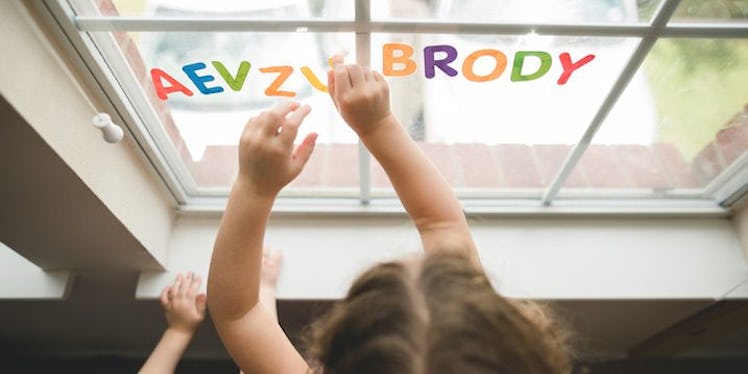
There's Actually A Reason Your Face Matches Your Name, According To Science
Science says our names might actually influence us more than we think.
A research team collected data from eight different studies which suggest cultures have assigned characteristics to various names in such a predictable way that even a computer algorithm can guess more accurately than chance.
Deemed "the Dorian Gray effect" after the Oscar Wilde novel where the actions of the leading character are reflected on his portrait, researchers investigated whether or not one's given name can really have "the Dorian Gray effect" on his or her face.
In one of the studies, Israeli participants were shown the faces of other Israeli people, and given five names to choose from.
Chance would give the participants a 20 percent accuracy rate, however in each variation of the study, the the participants were able to guess correctly around 30 percent of the time.
Researcher Yonat Zwebner told NPR,
We ran more than a dozen studies, and each time we had this feeling like, 'Oh boy, maybe this time it won't work.' And each time, it worked. That was really surprising.
Similarly, researchers gave a group of French participants pictures of French people, and a list of four names to choose from.
In this instance, pure chance would allow participants to guess the name accurately 25 percent of the time. They guessed accurately around 40 percent of the time.
To ensure these particular groups of people weren't just attuned to matching names to faces, researchers created an algorithm to help teach a computer how to also face-name match.
In the same way that Facebook is able to guess who to tag in a photograph, the computer "learns" how to place a name to a face.
Using a French database with around 100,000 profile pictures, the computer was given two options for names.
After practicing with a couple thousand, the computer was then tested and was more than 50 percent accurate with every name.
In addition to this, it's become apparent this ability has cultural constraints – meaning that Israeli participants can guess for other Israeli people, but when presented with French names, performed no better than chance.
So what are the larger implications of this?
The name your parents give you, before you're even born, may shape who you come to be because society has certain expectations for people with that exact name.
No one is really sure why, but next time you see a stranger and think, "he looks like a Kevin," know that you're probably right.